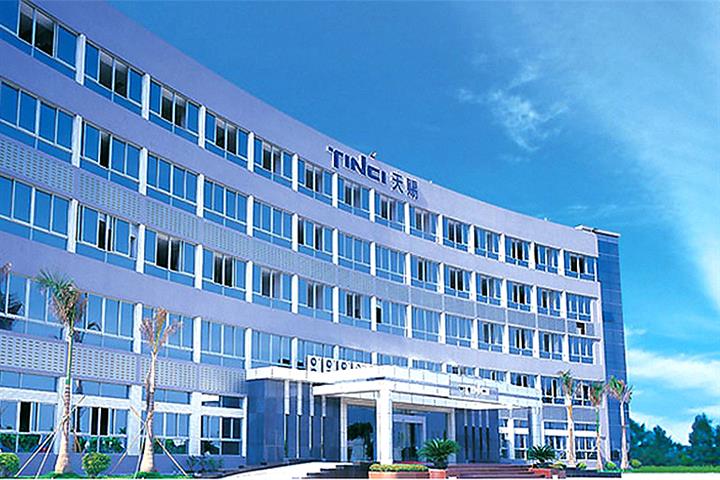 China’s Tinci Gains as Battery Electrolyte Maker Predicts First-Half Profit to Nearly Quadruple
China’s Tinci Gains as Battery Electrolyte Maker Predicts First-Half Profit to Nearly Quadruple(Yicai Global) July 13 -- Guangzhou Tinci Materials Technology advanced as much as 3.1 percent today after the leading Chinese maker of electric car battery electrolytes said it is expecting profit to surge by up to nearly four-fold in the first half from the same period last year on strong demand and big jumps in the price of electrolyte and cathode materials.
Tinci Materials’ share price [SHE:002709] was trading up 0.84 percent at CNY58.50 (USD8.70) as of 12:30 p.m. China time. Earlier in the day it had hit CNY59.84.
Net profit in the six months ended June 30 could be between CNY2.8 billion (USD420 million) and CNY3 billion, up from CNY783 million (USD116.5 million) the same period last year, the Guangzhou-based company said yesterday. Net profit in the first quarter was CNY1.5 billion.
The firm, which has been the country’s top supplier of electrolytes for EV batteries for the past four years, is expanding aggressively to meet surging demand as sales of new energy vehicles boom. Last year, it had output of over 100,000 tons and this is expected to quadruple this year as more capacity comes online, according to Southwest Securities' estimates.
Not content, Tinci will invest another CNY1.5 billion (USD223 million) to expand capacity in both battery materials output and battery recycling, it said yesterday.
There will be a new facility in eastern Jiangsu province, costing CNY1.2 billion. This will consist of two parts, namely a lithium battery electrolyte plant with an annual capacity of 200,000 tons and a battery recycling plant with a yearly output of 50,000 tons of mixed iron phosphate and lithium phosphate powder, as well as 8,000 tons of copper pellets and 4,000 tons of aluminum pellets.
Tinci also plans to spend CNY322 million to build a new factory in eastern Anhui province with an annual capacity of 75,000 tons of phosphorus pentafluoride and by-production of sulfuric acid and hydrofluoric acid. Phosphorus pentafluoride is one of the chemicals needed to make lithium hexafluorophosphate, a key raw material used in electrolytes.
Both factories should be ready in 12 months’ time, it said. The Jiangsu plant is expected to generate profit of CNY315 million (USD46.8 million) a year and revenue of CNY6 billion while the Anhui plant will bring in profit of CNY222 million a year and revenue of CNY2.8 billion.
The firm is also looking into building another electrolyte and raw materials plant as well as a recycling facility in central Hubei province to serve nearby clients. Should the project materialize, it will have an annual capacity of 200,000 tons of electrolytes, 200,000 tons of lithium hexafluorophosphate, 50,000 tons of phosphorus pentafluoride, and a variety of other chemicals.
Editor: Kim Taylor